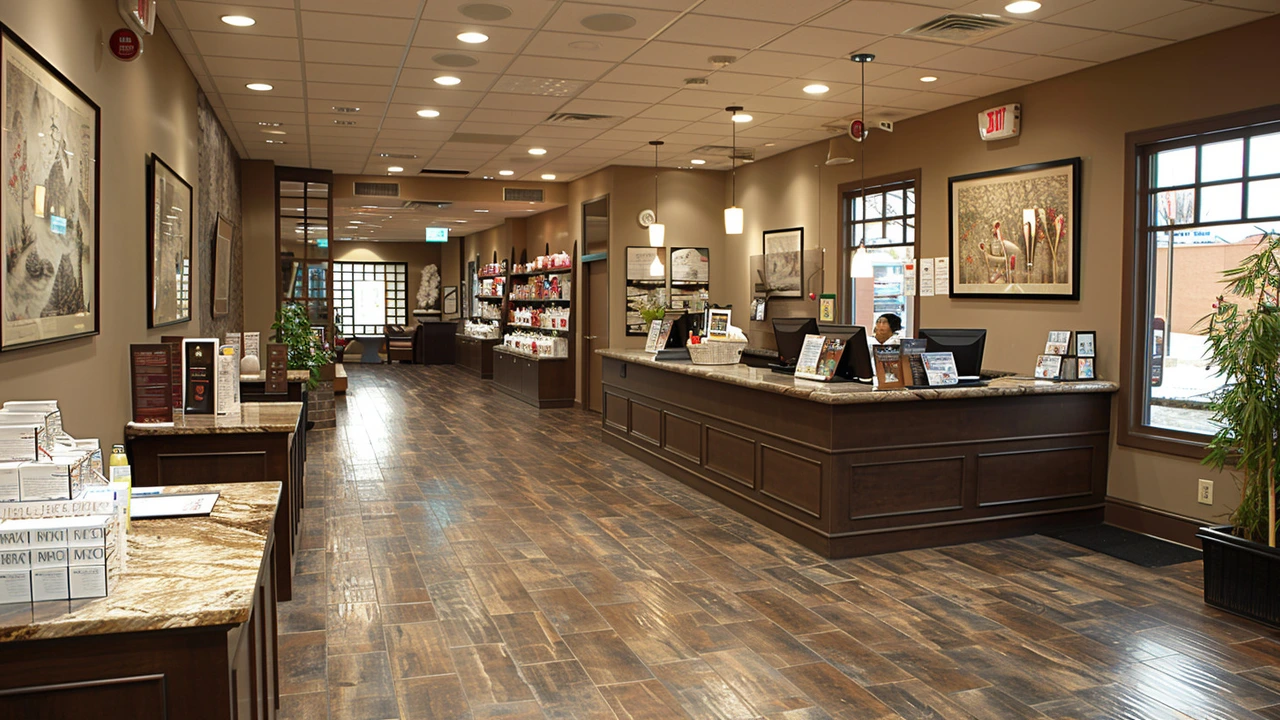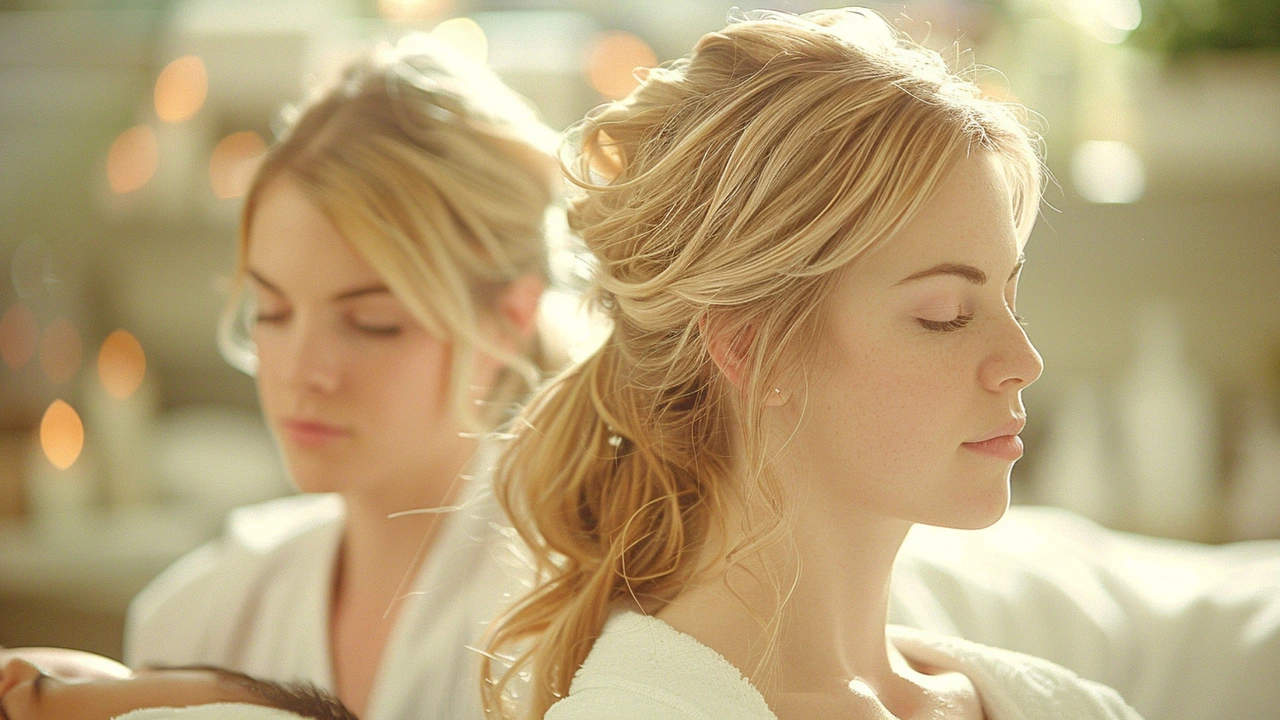Unlocking Emotional Healing: Exploring Heartfelt Remedies for the Soul

Understanding Emotional Healing
Before diving into remedies and practices, let's clear the air about what emotional healing truly means. It's not just about feeling better after a bad day; it's the profound process of reconciliation – with yourself, with others, and with events that have shaped your story. It's akin to piecing together a beautiful mosaic where each fragment is a memory, an experience, or an emotion. Oh, and trust me, it's as intricate and delicate as Teddy (my Maine Coon) trying to fit into a tiny cardboard box – cute but oh-so-complicated.
Now, emotional healing is as personal as the secret ingredient in your grandma's recipes – no one way suits all. Some find solace in art, while others may need to climb mountains (literally or figuratively) to reach that serene place. Me? I find writing to therapeutic, it's like building a bridge between my inner world and the universe – super handy when that universe seems to be tossing lemons your way.
The Role of Physical Touch in Emotional Healing
Ever got a hug and just felt the pieces miraculously starting to fall into place? Well, that's a healing touch for you! It's pretty much like emotional superglue. We're wired for connection both metaphorically and biologically. When we embrace, oxytocin (the cuddle hormone) floods our system, promoting a sense of trust and bonding. This, along with the decrease in cortisol (the stress marker), can create a calmer, more secure state of being. And if you're single like me, worry not – Teddy's purring cuddles are just as effective!
The beauty of touch is that it can be as simple as a pat on the back, or as nurturing as a massage. Remember that time is a master healer, so don't expect an overnight miracle. Just like it takes a hot minute for my laptop to wake up after a particularly jarring system update, our bodies and minds need time to process and mend.
Nourishing the Soul with Mindfulness and Meditation
Take it from someone who has a mind that runs faster than a kangaroo on a hot day – mindfulness and meditation can be game-changers. Mindfulness keeps you anchored in the present, which is pretty handy given that so much of emotional pain comes from either past woes or future worries. It's about savoring each moment, like the way I savor my first coffee of the day – deeply and with gusto.
Meditation, on the other hand, is your personal retreat. It's the mental equivalent of a spa day – calming the chaos and allowing for deeper understanding. But like learning to ride a bike, it takes practice to find your balance. And trust me, there will be times when your thoughts will try to pedal off in every direction.
Art Therapy: Unleash Your Creative Side for Healing
Did you know that you don't need to be the next Van Gogh to benefit from art therapy? It's true! Your masterpiece could be stick figures (like my specialty) or Picasso-esque doodles. The point is to let your creativity flow as a form of expression and release. It's rather like handing a megaphone to your inner feelings, allowing them to be heard and acknowledged.
And don't worry about being 'good enough.' Art for emotional healing is about the process, not the final product. It's the act of creation that counts. If I can turn a sketch of what's supposed to be Teddy (but looks more like a space alien) into a piece of healing art, you can too!
Physical Activity as an Outlet for Emotional Release
Physical activity is the unsung hero in the arena of emotional healing. It's not just about getting fit or staying healthy; it's about channeling your emotional energy in constructive ways. Personally, when the emotional tide is high, a good run helps me clear the mental fog. Picture this: the breeze in your hair, your favorite tunes pulsing in your ears, and the cathartic feeling of leaving your worries in the dust – exhilarating!
The beauty of exercise lies in its variety. Yoga, swimming, dancing, rock climbing – choose your weapon. And remember, it doesn't have to be a marathon; even a quick stroll with Teddy can do wonders for the spirit. The key is to find physical activities that resonate with you and integrate them into your routine as outlets for tension and stress.
Journaling: Dialogue with the Self
Let's talk journaling. It's more than a teenager's diary full of crushes and angst. Think of it as a confidential chat with your most understanding friend – yourself. Through writing, you can untangle thoughts, reflect on experiences, and set intentions. To put it simply, it's dumping the contents of your mind onto paper (or a screen) so that you can sort it out without the clutter.
And hey, journaling can be as flexible as a gymnast. Some days it's paragraphs of introspection, other days it's bullet points or doodles. There's no one-size-fits-all here. My journal is a wild mix of thoughts, feelings, and the occasional paw print from Teddy – he's a budding artist too, you know.
Building a Supportive Community
Remember, no man (or woman) is an island, and the same holds true for emotional healing. A support system is like the scaffolding around a building – it's essential while you're under construction. This could be friends, family, support groups, or even online communities. It's about finding your tribe – the people who get it and get you.
And while it's incredible to have humans in your corner, don't underestimate the power of pets. Teddy has been my steadfast companion through thick and thin. The mere act of caring for him brings structure and warmth to my life. So whether it's a Maine Coon or a goldfish, pets can be a wonderful addition to your emotional healing team.
Embracing Professional Help When Needed
Last but not least, sometimes the healing journey requires a skilled navigator – that's where professionals come in. Therapists, counselors, psychologists – they're the guides with maps when we're lost in our own emotional landscapes. Seeking help isn't a sign of weakness; it's a smart strategy to tackle those particularly stubborn emotional knots.
Just like you wouldn't hesitate to see a doctor for a physical ailment, there should be no hesitation to seek mental health support. After all, the brain is the most complex organ in the body; it deserves expert care. And believe me, as someone who's sat on that therapist's couch, the perspective and tools you gain can be as refreshing as a seaside breeze on a scorching summer day in Perth.





